
ASIAN ARGUMENTS
Asian Arguments is a series of short books about Asia today. Aimed at the growing number of students and general readers who want to know more about the region, these books will highlight community involvement from the ground up in issues of the day usually discussed by authors in terms of top-down government policy. The aim is to better understand how ordinary Asian citizens are confronting problems such as the environment, democracy and their societies development, either with or without government support. The books are scholarly but engaged, substantive as well as topical, and written by authors with direct experience of their subject matter.
SERIES EDITOR Paul French
Related titles in Asian Arguments
ALREADY PUBLISHED
Chinas Urban Billion by Tom Miller
China and the Environment edited by Sam Geall
FORTHCOMING
Ghost Cities of China by Wade Shepard
Kashgar by Sam Chambers
ABOUT THE AUTHOR
LETA HONG FINCHER is an award-winning former journalist who has published in a number of magazines and newspapers, including the New York Times. She is completing her Ph.D. in Sociology at Tsinghua University.
LEFTOVER WOMEN
The resurgence of gender inequality in China
LETA HONG FINCHER

Zed Books
LONDON | NEW YORK
Leftover Women: The Resurgence of Gender Inequality in China was first published in 2014 by Zed Books Ltd, 7 Cynthia Street, London N1 9JF, UK and Room 400, 175 Fifth Avenue, New York, NY 10010, USA
This ebook edition was first published in 2014
www.zedbooks.co.uk
Copyright Leta Hong Fincher 2014
The right of Leta Hong Fincher to be identified as the author of this work has been asserted by her in accordance with the Copyright, Designs and Patents Act, 1988
Designed and typeset in Monotype Bulmer by illuminati, Grosmont
Index by John Barker
Cover designed by www.alice-marwick.co.uk
All rights reserved. No part of this publication may be reproduced, stored in a retrieval system or transmitted in any form or by any means, electronic, mechanical, photocopying or otherwise, without the prior permission of Zed Books Ltd.
A catalogue record for this book is available from the British Library
Library of Congress Cataloging in Publication Data available
ISBN 978-1-78032-924-6
For Mike, Aidan and Liam
Introduction
Li Fang is relieved that she found a husband just in the nick of time. The parents of the university graduate and former human resources manager in Beijing feared that their only daughter was getting old and might never be able to marry. Li worried that she would pass the best child-bearing age and might no longer be able to give birth. She is 26.
Just after marrying, Li lost her job because her company did not want her to take two weeks of unpaid leave for a honeymoon. She does not share a bank account with her husband and does not know how much is in his account. Yet Li does not wish to discuss finances with her new husband now that she is unemployed, for fear that the topic would hurt his feelings. Rather than ask her husband to share more of his spending money with her, she is drawing down her own savings to pay for groceries, transportation and clothing. She also feels she has no claim to ownership of the marital home she shares with her husband because the home is registered in his name alone.
I do not have the right to expropriate property from someone elses family, says Li. So marriage does not provide Li with any shared ownership of assets, property or income, even though she lost her job precisely because she got married: why, then, does Li consider herself lucky? Well, she avoided the fate of her good friend, an executive at a multinational company who earns a top salary, but is still single at 31 years old and therefore branded a leftover woman.
Several men have pursued her, but shes not willing to marry them because her standards are too high. If she carries on like this, she will never find a husband, says Li.
Something is wrong with this picture.
In China, the derogatory term leftover woman or shengn (  ) is widely used to describe an urban, professional female in her late twenties or older who is still single. Many urban Chinese women, like Li, express anxiety about becoming a leftover woman if they are not married by their late twenties. And many marry quickly often within several months of meeting a man specifically to avoid being designated leftover. The intense pressure to marry comes from parents, relatives, friends and colleagues. But this pressure is magnified multiple times by the Chinese state media and government-sponsored matchmaking events.
) is widely used to describe an urban, professional female in her late twenties or older who is still single. Many urban Chinese women, like Li, express anxiety about becoming a leftover woman if they are not married by their late twenties. And many marry quickly often within several months of meeting a man specifically to avoid being designated leftover. The intense pressure to marry comes from parents, relatives, friends and colleagues. But this pressure is magnified multiple times by the Chinese state media and government-sponsored matchmaking events.
Even the state feminist agency, the All-China Womens Federation, has perpetuated the leftover women term. Chinas ruling Communist Party established the Womens Federation to protect womens rights and interests. The emancipation of women was a key goal of both the Communist Revolution, which culminated in the founding of the Peoples Republic of China in 1949, and, decades before that, of the Republican Revolution, which toppled the countrys last dynasty, the Qing (16441911). Yet the Womens Federation today has taken a leading role in the campaign to pressure urban, educated women in their mid- to late twenties to stop being so ambitious and get married.
In 2007, the Womens Federation defined the term leftover women as single women older than 27, according to the state-run Xinhua News Agency, the official mouthpiece of Chinas Communist Party. That same year , Chinas Ministry of Education added the term to its official lexicon. Since then, the Chinese state media have aggressively promoted the term through articles, surveys, cartoons and editorials stigmatizing educated women who are still single, often referring to a crisis in growing numbers of educated women who cannot find a husband.
Typical headlines run by Xinhua News scream like sensational tabloids: Overcoming the Big Four Emotional Blocks Leftover Women Can Break out of Being Single; Eight Simple Moves to Escape the Leftover Women Trap, and the column Do Leftover Women Really Deserve Our Sympathy?, which was posted on the Womens Federation website in March 2011, just after International Womens Day:
Pretty girls dont need a lot of education to marry into a rich and powerful family, but girls with an average or ugly appearance will find it difficult. These kinds of girls hope to further their education in order to increase their competitiveness. The tragedy is, they dont realize that as women age, they are worth less and less, so by the time they get their M.A. or Ph.D., they are already old, like yellowed pearls.
This brazenly insulting statement may have come from the Chinese state media, but its message of gender discrimination is all too familiar for many women in other parts of the world who encounter some of the same obstacles facing Chinese women.
This book argues that the state-sponsored media campaign about leftover women is part of a broad resurgence of gender inequality in post-socialist China, particularly over the past decade and a half of market reforms. I focus on urban, educated, emerging middle-class women in China. Yet I have received messages through my Twitter account from women in countries such as India, Pakistan, Russia, Turkey, Singapore, Nigeria, Kenya and the Philippines telling me that they, too, face intense pressure to marry and stigma if they remain single. Women in highly industrialized countries such as the United States and Great Britain share some of the same problems of gender inequality in wealth now experienced by women in modern China. I hope that this book will speak to readers everywhere.
Next page
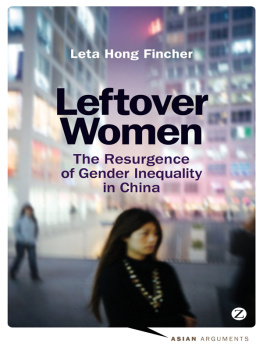

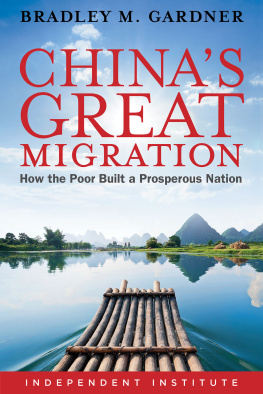
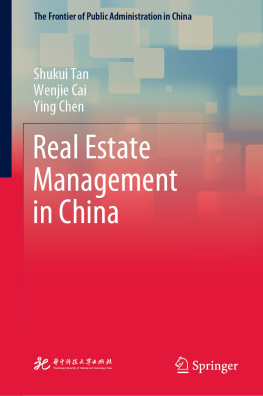
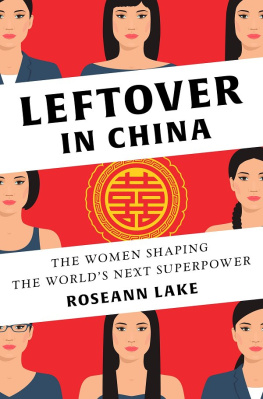
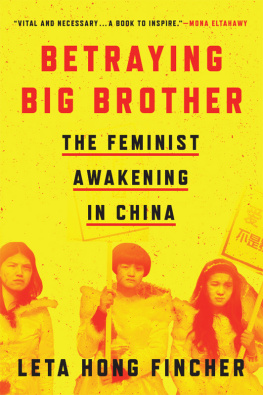
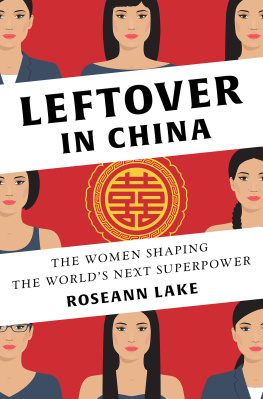
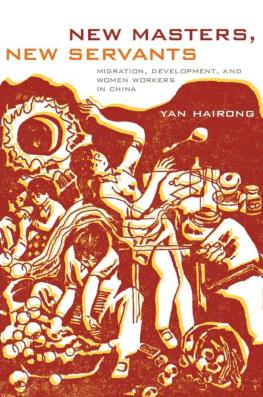



 ) is widely used to describe an urban, professional female in her late twenties or older who is still single. Many urban Chinese women, like Li, express anxiety about becoming a leftover woman if they are not married by their late twenties. And many marry quickly often within several months of meeting a man specifically to avoid being designated leftover. The intense pressure to marry comes from parents, relatives, friends and colleagues. But this pressure is magnified multiple times by the Chinese state media and government-sponsored matchmaking events.
) is widely used to describe an urban, professional female in her late twenties or older who is still single. Many urban Chinese women, like Li, express anxiety about becoming a leftover woman if they are not married by their late twenties. And many marry quickly often within several months of meeting a man specifically to avoid being designated leftover. The intense pressure to marry comes from parents, relatives, friends and colleagues. But this pressure is magnified multiple times by the Chinese state media and government-sponsored matchmaking events.